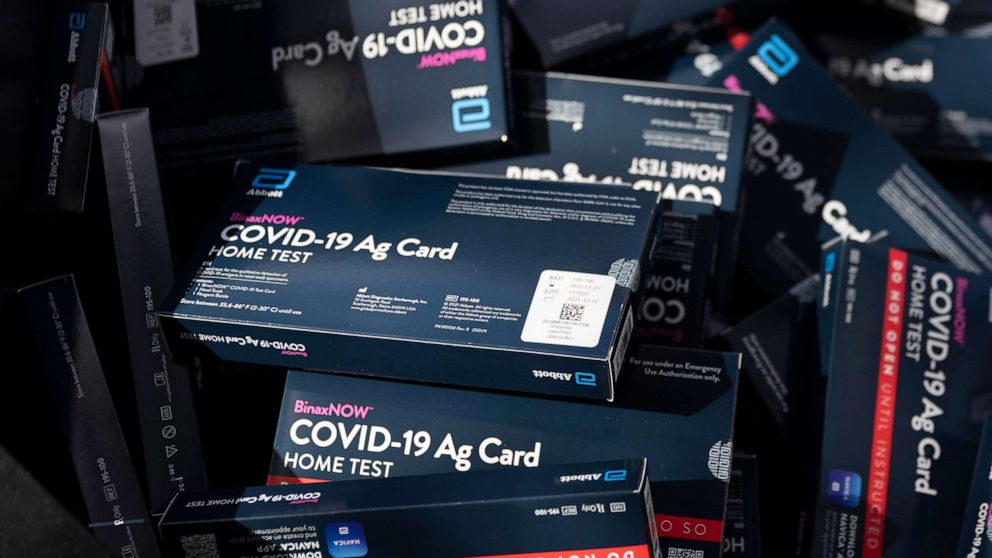Big business profiteers have made out like bandits through the Pandemic, emboldened by myriad failures of government and community panic. Callum Foote and Stephanie Tran report on the RAT test wave and the wave of private hospital profiteering looming in its wake.
Another wave of the virus, another wave of foaming profits for corporations and the big business allies of government. At the height of the Alpha wave of Covid-19 in 2020, almost $40bn was squandered on JobKeeper payments to entities which did not need it, even highly profitable foreign multinationals.
Now, at the peak of Omicron, they are making out like bandits again, profiting from community fears and government fears of holding corporations to account. The present wave of price gouging over rapid Covid tests is likely to be followed by another wave of private hospital price gouging as the hospital system is overwhelmed by infected patients and staff and the overflow spills into the private hospital system where are good deal of profits, via secret channels make their way to Cayman Islands.
RAT price gouging
On Saturday, Greg Hunt leapt on the issue of rapid antigen test (RAT) price gouging with the slickness we have come to expect from the Health Minister during the pandemic, declaring measures under the Biosecurity Act 2015 to prohibit price gouging and restrict the export of RATs.
According to Hunt, “these measures will prevent people who have purchased RAT’s at retail settings to on-sell them at extortionate prices, which is assessed at more than 120 per cent more than the price for which they were purchased”.
The decision relates only to individuals who purchase RATs from retail stores and then attempt to on-sell them. The punishment for not handing over the tests once you have been caught price gouging is a prison sentence of up to five years, a fine of up to $66,600, or both.
However, his apparently draconian crackdown leaves retailers themselves selling RATs at extortionate prices. It is open slather, they are price gouging, exploiting community fear and panic, and government fears of being tough on big business.
Ironically, the US government entered into a $230 million deal with an Australian home test manufacturer 11 months ago to ensure Americans had ready access to tests, something Hunt and the Federal Government failed to do. And in America, like many other countries, governments provide the rapid tests for free.
For example, on January 1, retailer Kogan was caught selling one RAT for $45 and a box of 20 for $668 through its online store Kogan.com.
Kogan’s most expensive tests have since been removed and replaced with packs ranging from $60 for five to $250 for 20.
Coles and Woolworths have also entered the RAT game. Both chains are advertising 2-pack Hough tests for $30 ($15 per test). According to the internet, the average retail price is $11.60. What do they actually cost to manufacture? Possibly $2 apiece.
No doubt there are profiteers up the supply chain too, charging big mark-ups at the wholesale level. But 100% margins in the high-volume, low-margin Australian supermarket business surely constitutes profit gouging by the duopoly.
Both Woolworths or Coles refused to respond to questions regarding their costs of purchasing bulk RATs, nor have manufacturers of commonly used RAT’s InnovationScientific and Hough Covid responded to queries regarding their bulk sales rates.
Greg Hunt also refused to answer why he and the Australian government choose not to protect Australians from retailer price gouging by introducing additional measures for retailers as they did with individuals. The major retailers are political donors.
Hunt’s office instead referred MWM to the competition regulator’s recent announcement that they would investigate claims made by retailers about the reasons for higher RAT prices due to supply shortfalls. ACCC chair Rod Sims also warned that businesses must also set their prices independently of their competitors and not collude over pricing.
The Health Office has previously refused to reveal the manufactures of the 54 million masks Hunt announced the Federal Government bought in 2020 and 2021, stating, “Due to the strategic nature of the National Medical Stockpile (NMS), the department does not reveal specific details of products provided.”
Critics say the government has not only provided the playing field for corporate profiteers but encouraged the game via its secrecy and failure to hold the corporate players, many of which are donors to the Coalition, accountable.
Fed Government renting private ICU beds
The private sector is now profiting from this latest wave of the virus in another way. And large profits are likely to flow to Caribbean tax havens as the second player in private hospitals in Australia, Healthscope, was sold to private equity group Brookfield and is now controlled in the Cayman Islands.
Again, Greg Hunt leapt into action, foreseeing the strain on the public health system’s ICU units he announced a $1.3 billion facility to rent the private hospital sector’s additional ICU beds.
Hunt said that the costs for these beds are not capped and that “If more is required, more will be provided. If it turns out that it’s not that expensive, then those funds will be available for other activities. That takes Australia’s total “additional investment” to over $5.4 billion within the health sector.
It is not yet clear whether all of this $5.4 billion in “additional investment” has been sent straight to the private sector like the $1.3 billion above.
This is after Prime Minister Scott Morrison denied requests from the states to temporarily increase Federal health spending in January last year.
The funding for new ICU beds is necessary. Modelling based on NSW’s infection data and current parameters shows that up to 4,700 covid patients will be hospitalised at the current wave’s peak, with 273 Covid patients in intensive care.
Worst-case scenarios predict that up to 6,000 people will be hospitalised, with 600 in ICU beds.
NSW’s public hospital bed capacity is about 9,500, and on Thursday, 8,000 of these beds were occupied by 1,600 patients with Covid and 6,400 people receiving treatment for other illnesses.
The $1.3 billion is sure to more than make up for the loss in revenue experienced by private hospital operators such as Ramsay and possibly Healthscope (although its secrecy precludes public visibility on profits) who reported a $55 dip in revenue for the cancellation of elective surgeries throughout 2021, a move that Victoria and NSW have just recently reinstated.
Ramsay Australia has told investors that “long waits in the public sector driving demand (in private hospitals)” and reported growth in hospital admissions and longer stays throughout the COVID pandemic.
Ramsay has told their investors that Australia’s ageing population and higher rates of cancer are driving higher hospital demand. Public wait lists have increased while population growth continues, and “access to critical resources is constrained”, leading to Ramsay’s prediction of growing private hospital profits.
At least Ramsay, being publicly listed on the ASX, discloses the sources and extent of its profits. For Healthscope, which was bought by Brookfield in a takeover, there is no such visibility. The group, now controlled in Cayman Islands – where the identity of both directors and shareholders remains a secret – owns 42 private hospitals in Australia, including the big Northern Beaches public/private hospital, and a slew of medical businesses.
Brookfield is notoriously secretive and a notorious tax avoider and the takeover documents for its Healthscope deal, waved through by Treasurer Josh Frydenberg, show a structure where Healthscope is controlled by a number of entities which are in turn controlled in Cayman Islands.
Paradoxically, the government’s failure to rein in the pandemic, and its secrecy on behalf of corporations, has meant wave after wave of profits for large corporate donors has accompanied each wave of the virus.
JobKeeper, way back in 2020 almost two years ago, was merely the first wave of profit gouging. The pandemic has proven a boon for unscrupulous corporations, indeed even the medical colleges who exploited JobKeeper too.


